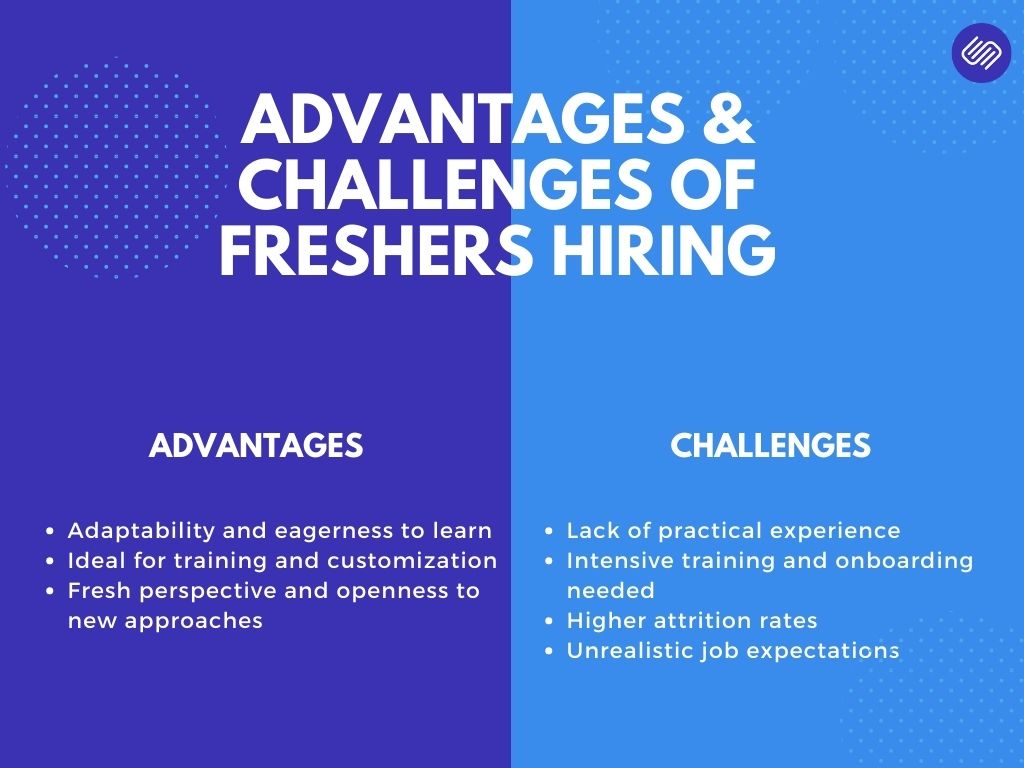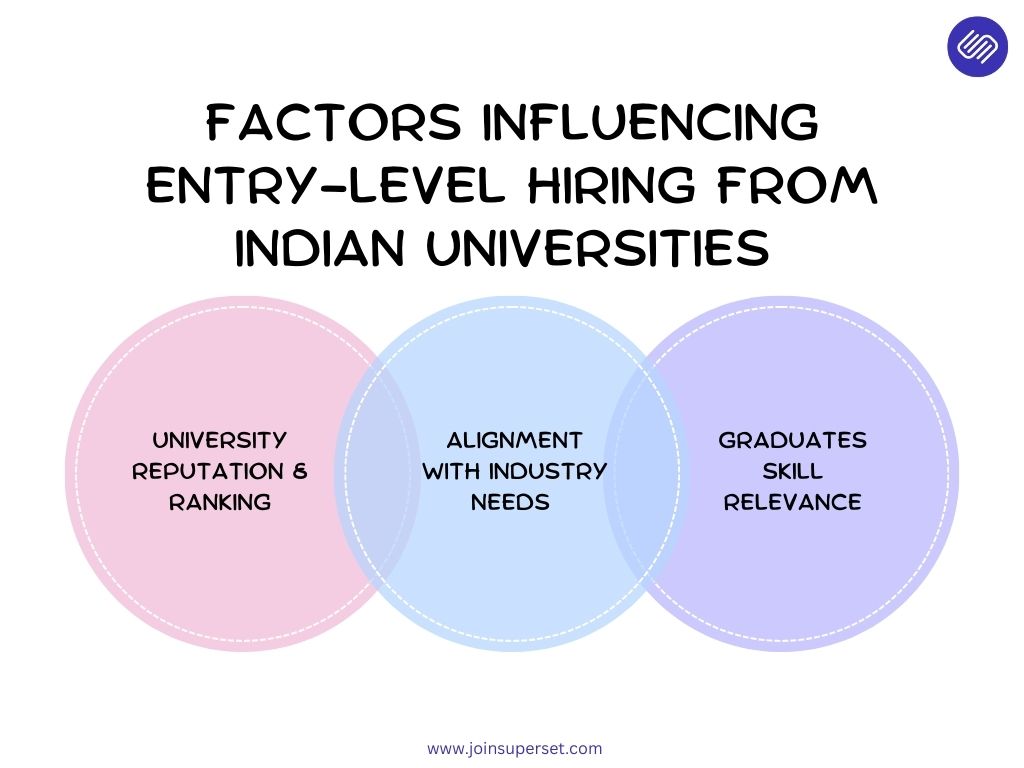Introduction
The Indian job market, known for its dynamism and diversity, places immense importance on hiring fresh graduates, often referred to as “freshers.” These young minds, brimming with enthusiasm and untapped potential, are the lifeblood of many industries. This article delves into the significance of freshers hiring, particularly from universities across India, and explores how companies prioritize entry-level hiring to harness this talent pool.
The Dynamics of Freshers Hiring in India
Freshers hiring in India has undergone a remarkable transformation over the years. While experienced professionals were once the preferred choice due to their practical knowledge and industry insights, companies are now increasingly recognizing the advantages of bringing in young, moldable talent. This shift is driven by both economic and strategic considerations. Freshers come with lower salary expectations, making them a cost-effective choice for companies looking to build their workforce from the ground up. Moreover, these young recruits inject new ideas and perspectives, fostering innovation and driving growth within organizations.
Advantages and Challenges of Hiring Freshers

Hiring freshers brings forth a plethora of advantages for companies. Their adaptability and willingness to learn make them ideal candidates for training and molding according to a company’s specific requirements. Furthermore, their lack of prior work experience can be turned into an asset, as they come without preconceived notions and are more open to adopting new approaches.
However, challenges abound in the realm of freshers hiring. The absence of practical experience often requires extensive training and onboarding efforts, which can be time-consuming and resource-intensive for companies. Additionally, the attrition rate among freshers tends to be higher due to factors like unrealistic job expectations or limited understanding of the corporate world. Balancing these advantages and challenges is key to optimizing freshers’ potential within an organization.
The Role of Universities in Entry-Level Hiring
Indian universities play a pivotal role in shaping the talent landscape for freshers hiring. The country’s higher education system, while facing its own set of challenges, produces a vast pool of graduates ready to enter the workforce. However, for universities to truly become talent incubators, a shift towards more holistic education is crucial. Integrating practical skills and industry-relevant training alongside theoretical knowledge can better equip graduates for the demands of the job market.
One notable strategy in bridging the gap between academia and industry is the establishment of industry-academia partnerships. These collaborations take various forms, including internships, workshops, joint research projects, and seminars. By participating in such initiatives, universities expose students to real-world scenarios, enabling them to develop skills that go beyond the confines of textbooks.
How Companies Prioritize Entry-Level Hiring from Indian Universities

Several factors influence companies’ decisions when it comes to hiring freshers from Indian universities. The reputation and ranking of the university often serve as initial filters, indicating the quality of education imparted. Specialized programs and courses tailored to industry needs also catch the attention of recruiters. Universities that consistently produce graduates with relevant skills gain a competitive edge in the freshers hiring landscape.
Campus recruitment drives are the backbone of entry-level hiring in India. These events offer companies direct access to a diverse pool of talent. However, successful placement seasons require preparation on both sides. Companies must present themselves attractively to potential hires, showcasing not just the job role but also the organization’s culture and growth prospects. On the other hand, universities must nurture students’ soft skills and employability traits to ensure they are interview-ready.
Case Studies: Exemplary Freshers Hiring Strategies
Examining real-world case studies provides insights into the diverse strategies companies employ to harness the potential of freshers. Tech Giant X, for instance, leverages hackathons and coding competitions in universities to identify top talent. This not only gauges students’ technical prowess but also assesses their problem-solving abilities under pressure. Multinational Conglomerate Y focuses on diversity and inclusion, recognizing that a varied workforce fosters innovation. This company actively seeks graduates from different backgrounds and experiences.
Even startups like Z have their own unique approach to freshers hiring. They look beyond technical skills and seek out entrepreneurial potential among university graduates. These startups aim to foster a culture of innovation and risk-taking right from the entry-level.
The Shifting Landscape: Remote Work and Freshers Hiring
The advent of remote work has introduced new dynamics into freshers hiring. With the rise of hybrid work models, companies are no longer restricted by geographical boundaries when recruiting entry-level talent. This opens up opportunities for graduates from universities outside the usual hiring hubs. However, remote onboarding poses its own challenges, as integrating freshers into a company’s culture and workflow becomes more complex from a distance.
Future Trends in Freshers Hiring and University Partnerships
The landscape of freshers hiring is continually evolving, and several trends are poised to shape its future. Firstly, there will be a growing emphasis on upskilling and continuous learning. As technology and industries rapidly evolve, freshers must possess the ability to adapt and learn throughout their careers. This puts universities and companies on the same page, as both need to invest in lifelong learning initiatives.
Secondly, collaborations between companies and universities will strengthen further. Industry-academia partnerships will become even more intricate, integrating research, skill development, and practical training. Companies will actively participate in shaping curricula, ensuring that graduates are better aligned with industry demands.
Conclusion
Freshers hiring from Indian universities serves as a cornerstone of the country’s workforce development. The symbiotic relationship between universities and companies is crucial for nurturing and harnessing young talent. While challenges persist, the advantages of hiring freshers, coupled with evolving strategies and partnerships, promise a bright future for entry-level recruitment. As India’s economy continues to diversify, freshers will remain a vital force in driving innovation, growth, and success across industries.
Frequently Asked Questions
How do universities contribute to entry-level hiring in India?
Universities play a crucial role in entry-level hiring by acting as talent incubators. They equip students not only with theoretical knowledge but also with practical skills through workshops, internships, and industry projects. By fostering industry-academia partnerships, universities bridge the gap between classroom learning and real-world application. This not only enhances graduates' employability but also provides companies with access to a pool of young talent who are already equipped with relevant skills and experiences.
How has the rise of remote work impacted freshers hiring and onboarding?
The rise of remote work has introduced new dynamics to freshers hiring. Companies are no longer limited by geographical constraints, allowing them to tap into talent from universities outside their usual recruitment hubs. However, remote onboarding presents challenges in terms of integrating freshers into a company's culture and workflow from a distance. This shift has prompted companies to reimagine their onboarding processes, leveraging technology to ensure effective communication, training, and integration of freshers into the company's ecosystem.








